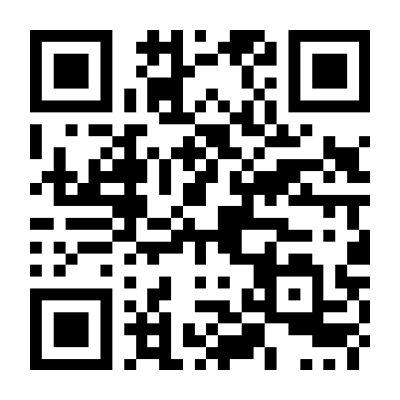单选题
0分
Text 2 Internet service providers have realized that they are sitting on a treasure chest of dat...
Text 2
Internet service providers have realized that they are sitting on a treasure chest of data about your online activities that they could be selling to advertisers. Recognizing the privacy threat, the Federal Communications Commission adopted rules that would have stopped them from doing so without your consent, but Congress recently shot down the regulation. This is a big deal.
Privacy doesn't merely benefit individuals; it fundamentally shapes how society functions. It is crucial for marginalized communities and for social movements. Privacy enables these groups to network, organize, and develop their ideas before challenging the status quo. But when people know they're being tracked and monitored, they change their behavior. This chilling effect hurts our intellectual freedoms and our capacity for social progress.
The data that tracks our behavior feeds into machine-learning algorithms that make judgments about us. When used for advertising, they can reproduce our own prejudiced behavior. Marketers can use machine learning to figure out your unique features-do you resDond better to words or to pictures? Do you make impulsive shopping decisions? -to target you with exactly the advertisement that will best persuade you. When consequential decisions about employment or loans are made using this kind of data, the result can feel absurd and incomprehensible, because these systems aren't programmed to explain their decisions. There aren't yet effective ways for humans to hold algorithms accountable for how they categorize us.
The good news is how effective technology can be in preventing tracking. We found that ad blockers and other browser-privacy tools can decrease tracking by 80 percent or more. More complex tools can be even more effective. In other worcls, the more technically savvy among us can enjoy dramatically better privacy and digital freedoms. But this has resulted in a technological "arms race," which is worrying by itself, but also because such technical skill correlates with historically advantaged groups. Meanwhile, publishers are caught in the ad- blocking crossfire, endangering the free press.
One bright spot is that online privacy research has had a tremendous effect. It has helped regulators curb the worst of the offenses, forced companies to roll back invasions because of public-relations pressure, spurred the development of privacy tools, and developed a healthy public debate about online tracking. The fight for privacy is now closely linked to the fight for digital civil liberties and democratic values, and it is a movement that includes activists, artists, journalists, researchers, and everyday users of technology. There's tremendous power in your hands to take charge of your own privacy as well as foster these societal values.
30. Online privacy research has had a tremendous effect by____.
Internet service providers have realized that they are sitting on a treasure chest of data about your online activities that they could be selling to advertisers. Recognizing the privacy threat, the Federal Communications Commission adopted rules that would have stopped them from doing so without your consent, but Congress recently shot down the regulation. This is a big deal.
Privacy doesn't merely benefit individuals; it fundamentally shapes how society functions. It is crucial for marginalized communities and for social movements. Privacy enables these groups to network, organize, and develop their ideas before challenging the status quo. But when people know they're being tracked and monitored, they change their behavior. This chilling effect hurts our intellectual freedoms and our capacity for social progress.
The data that tracks our behavior feeds into machine-learning algorithms that make judgments about us. When used for advertising, they can reproduce our own prejudiced behavior. Marketers can use machine learning to figure out your unique features-do you resDond better to words or to pictures? Do you make impulsive shopping decisions? -to target you with exactly the advertisement that will best persuade you. When consequential decisions about employment or loans are made using this kind of data, the result can feel absurd and incomprehensible, because these systems aren't programmed to explain their decisions. There aren't yet effective ways for humans to hold algorithms accountable for how they categorize us.
The good news is how effective technology can be in preventing tracking. We found that ad blockers and other browser-privacy tools can decrease tracking by 80 percent or more. More complex tools can be even more effective. In other worcls, the more technically savvy among us can enjoy dramatically better privacy and digital freedoms. But this has resulted in a technological "arms race," which is worrying by itself, but also because such technical skill correlates with historically advantaged groups. Meanwhile, publishers are caught in the ad- blocking crossfire, endangering the free press.
One bright spot is that online privacy research has had a tremendous effect. It has helped regulators curb the worst of the offenses, forced companies to roll back invasions because of public-relations pressure, spurred the development of privacy tools, and developed a healthy public debate about online tracking. The fight for privacy is now closely linked to the fight for digital civil liberties and democratic values, and it is a movement that includes activists, artists, journalists, researchers, and everyday users of technology. There's tremendous power in your hands to take charge of your own privacy as well as foster these societal values.
30. Online privacy research has had a tremendous effect by____.
参考答案: D
参考解析: [信息锁定]第五段①句指出网络隐私研究已产生重大影响。②句指出研究借助公共关系压力迫使公司减少隐私侵犯,并生成了有关网络追踪的健康公众辩论。③④句说明现状:隐私斗争已是全民广泛参与的运动,捍卫隐私的力量就在你手中。可见,网络隐私研究强化了公众的网络隐私保护意识,D.正确。[解题技巧] A.基于主观认识“研究的部分作用在于为管理者提供证据”,对第五段②句“网络隐私研究协助监管者制止严重侵犯行为”过度推导,但文中并未提及网络隐私研究以何种方式出助监管。B.将第五段②句研究迫使公司停止入侵的方式“借助公共关系压力”篡改为“罚款处罚”。C.将第五段②句研究“推动隐私工具发展”局限为“设计隐私工具”。

 百度扫一扫练题
百度扫一扫练题
 关注千题库公众号
关注千题库公众号








